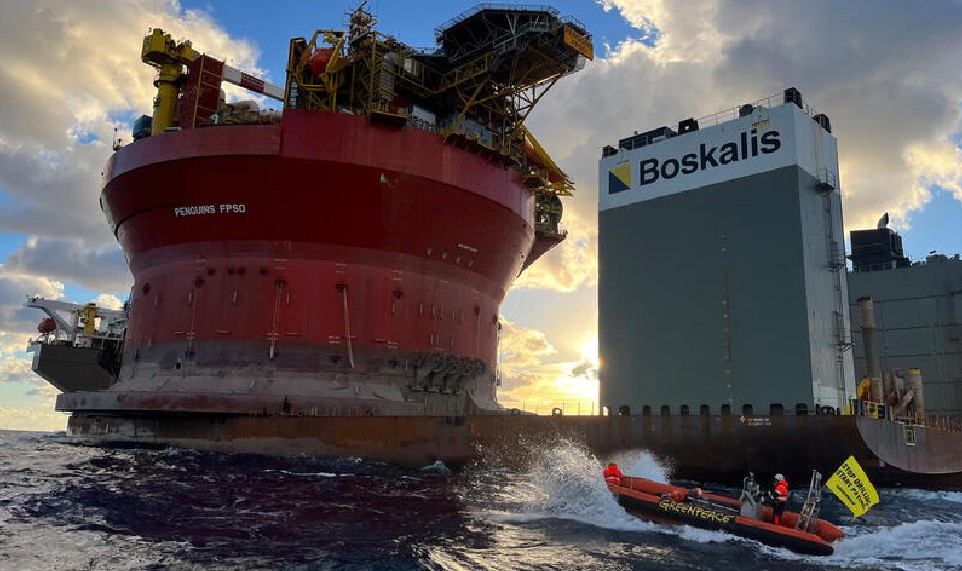Shell and Greenpeace settle lawsuit over FPSO boarding

Shell Settles Lawsuit with Greenpeace
In a significant legal development, Shell, the global energy giant, has settled with the environmental organization Greenpeace. This settlement stems from a multimillion-dollar lawsuit initiated by Shell after Greenpeace activists boarded one of its oil rigs during a protest in early 2023. The case has drawn attention not only for its financial implications but also for the broader issues surrounding corporate accountability and environmental activism.
Details of the Settlement
The lawsuit began when Shell sought $2.1 million in damages from Greenpeace. However, the environmental group countered that Shell only demanded $1 million in damages while also planning to spend an additional $10 million in legal fees. Greenpeace claimed that losing the case could have posed one of the most significant financial threats in its 45-year history. Ultimately, the settlement concluded with Greenpeace accepting no liability and agreeing to pay nothing to Shell. Instead, the organization will donate £300,000 (approximately $383,000) to the Royal National Lifeboat Institution, a charity focused on maritime safety.
Activists in Australia and France Target Ports to Highlight Causes
As part of the agreement, Greenpeace has signed a legally binding commitment with Shell UK and the high court. This commitment prohibits the group from conducting similar protests at or near key oil and gas platforms in the North Sea for a period of five to ten years. Greenpeace has stated that the four sites involved are primarily declining fields, and they have no immediate plans for direct action there. Nevertheless, the organization has affirmed its intention to continue campaigning against Shell, particularly in the North Sea region.
Reactions and Implications
Shell expressed satisfaction with the outcome of the settlement. A spokesperson for the company emphasized that the funds would support a charity dedicated to safety at sea. They clarified that the issue was not about the right to protest but rather about the illegal boarding of the vessel, which a high court judge described as a situation that endangered both the activists and the crew on board.
On the other hand, Greenpeace has characterized the lawsuit as an act of intimidation. They view it as a strategic lawsuit against public participation (SLAPP), a tactic often employed by large corporations to silence dissent and criticism. The protest that sparked the lawsuit involved four activists from diverse backgrounds, including the UK, Turkey, the US, and Argentina. They managed to board the 52,000-tonne heavy-lift vessel White Marlin, which was transporting the Shell-operated cylindrical Penguin FPSO platform. This platform was en route to the Penguins oil and gas field, located 240 kilometers off the Shetland Islands, to unlock eight new wells.
The settlement highlights the ongoing tension between environmental activism and corporate interests. As Greenpeace continues its campaigns, the implications of this case may resonate within the broader context of environmental protection and corporate accountability.
